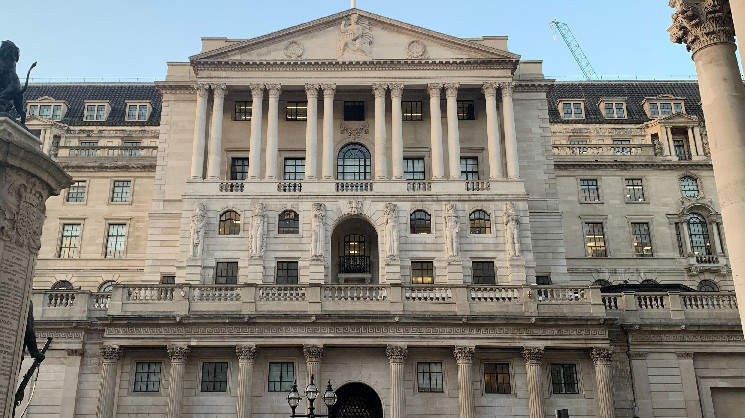The growth in asset tokenization could contribute to greater risks to financial stability from unbacked crypto and stablecoins, the Bank of England said in its Financial Stability report.
Banks are becoming more positive about the use of crypto technologies such as programmable ledgers and smart contracts for the tokenization of money and real-world assets (RWA), the central bank said in its half-year report published on Wednesday.
Tokenization, the process of issuing a digital representation of an asset, is a growing part of the crypto ecosystem and is expected to become a $10 trillion market by 2030, according to asset management company 21.co. Last month, HSBC, one of the world’s largest banks, said it plans to launch a digital asset custody service for institutional clients that focuses on tokenized securities. Earlier this week, Societe Generale, one of France’s largest banks, sold 10 million euros ($10.8 million in tokenized green bonds) on the Ethereum blockchain. And Archax, a UK-registered crypto exchange, plans to release an exchange for tokenized assets.
That increasing size could pose risks to the broader financial environment, the bank said. The boom could “increase the interconnectedness of markets for crypto assets and traditional financial assets (as they are represented on the same ledger); and create direct exposure for systemically important institutions,” the report said.
While risks are limited at this time, the BOE said it will continue to monitor the trend and urged greater global cooperation. Regulators in the country are already trying to determine how to best regulate and accommodate fund tokenization.
“International coordination can reduce the risks of cross-border spillovers, regulatory arbitrage and market fragmentation,” the report said, something lawmakers have called for.

